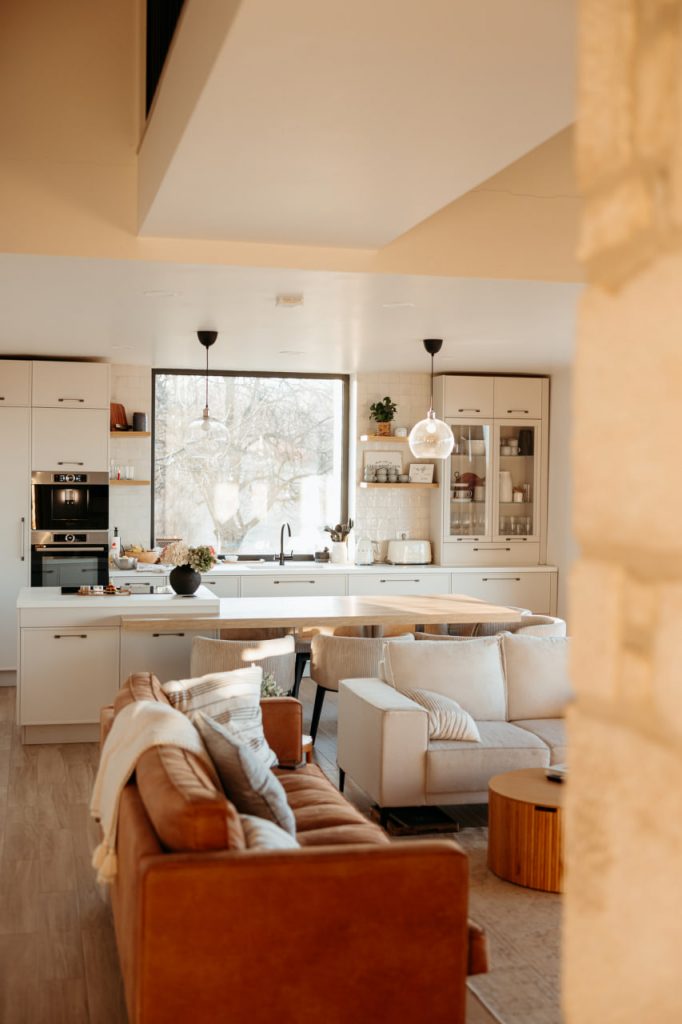Creating a home that supports your daily habits isn’t just about aesthetics; it’s about building an environment that fosters productivity and well-being. The design of your space plays a crucial role in how you feel, think, and act. Whether you’re working, relaxing, or exercising, each area of your home should be designed to enhance your habits and routines. In this blog, we’ll explore how thoughtful home design can make your daily life more productive, organized, and fulfilling.
Understand Your Habits
Before diving into the design, it’s essential to understand your daily habits and routines. What activities do you engage in most? What are the key moments that drive your day? These could include work, exercise, cooking, or unwinding in the evening. The goal is to create spaces that align with your needs and foster positive habits.
Take the time to write down your daily tasks and see which areas of your home are most frequently used. Once you have a clear understanding, you can start to design spaces that encourage focus, creativity, relaxation, and productivity.
Set Clear Intentions for Each Space
Each room in your home should serve a specific purpose that ties into your habits. The key is to ensure that each space is intentional and free from distractions that can hinder your productivity. For example:
- Workspace: If you work from home, create a designated area for work that is free of distractions. A minimalist desk, ergonomic chair, and natural light can help improve focus and efficiency.
- Living Room: This space can be designed for relaxation, where you can unwind after a busy day. Comfortable seating, warm lighting, and calming colors will support your mental well-being.
- Kitchen: A functional kitchen that promotes healthy eating is essential. Organize kitchen tools for easy access, incorporate storage for meal prep, and keep the counters clutter-free to encourage healthy habits.
By making each room serve a specific purpose, you are actively designing an environment that supports your daily habits.
Incorporate Ergonomics and Comfort
When designing for productivity, comfort is key. Ergonomics—especially in workspaces—is crucial to reducing strain and improving focus. For example, choosing the right desk, chair, and lighting will ensure that you remain comfortable during long hours of work or study. A well-designed space will make it easier for you to settle into a productive rhythm without being interrupted by discomfort.
For other spaces like the living room or bedroom, invest in cozy furniture, soft textiles, and ambient lighting to create a relaxing atmosphere that invites rest and recuperation.
Use Colors and Lighting to Your Advantage
Colors and lighting significantly influence mood and productivity. Here are some tips:
- Colors: Choose colors based on the mood you want to evoke in each space. For work areas, go for calming yet stimulating shades like blues and greens. For living spaces, opt for warm and soothing colors like beige, soft pinks, and light greys to create a calm environment.
- Lighting: Lighting can make or break the productivity of a space. Natural light is a must, so maximize windows and natural light sources where possible. Additionally, invest in adjustable lighting that allows you to control the ambiance based on the time of day or activity. A mix of task lighting, ambient lighting, and accent lighting helps create a flexible environment.
Prioritize Storage and Organization
A cluttered environment can severely impact productivity. To design a space that supports your daily habits, make storage and organization a priority. Use minimalist storage solutions, such as hidden cabinets, open shelving, and multipurpose furniture, to keep items easily accessible while maintaining a clean, orderly space.
In the kitchen, for example, organize your pantry and cooking tools by category to reduce time spent searching for ingredients. In your office, keep only the essentials on your desk, and store documents or supplies out of sight to create a clear, distraction-free environment.
Maintain Flexibility
One of the most important aspects of designing for your daily habits is creating a space that’s flexible enough to adapt as your needs evolve. As your life changes, your home should be able to support new habits and routines. Choose furniture and decor that are easy to rearrange or repurpose. Multifunctional pieces like modular sofas, foldable desks, and adjustable shelving allow you to customize the space based on your current needs.

